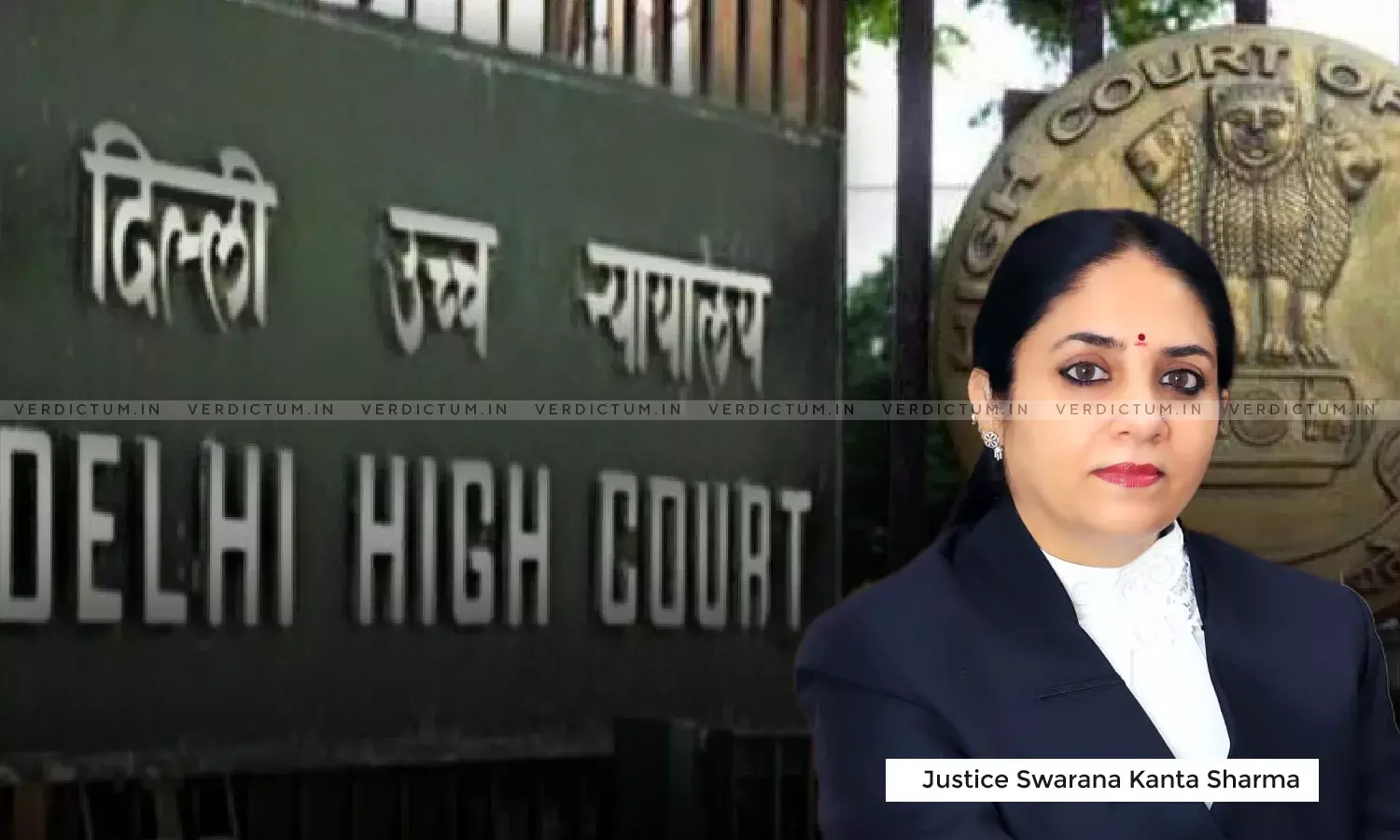Difference Between Mental Health & Illness: Delhi HC Introduces Guidelines For Prisoners' Well-Being, Uncovered By Prison Rules

Justice Swarana Kanta Sharma, Delhi High Court
The Delhi High Court recently while dealing with a Writ Petition under Article 226 of the Constitution by a person in Judicial custody for more than 10 years, convicted of offences under Sections 302/34 of the Indian Penal Code, seeking release on parole for a period of 8 weeks observed that there is a need to balance long period of incarceration with right to mental health of prisoners.
The Single Judge Bench of Justice Swarana Kanta Sharma, however, noting the past unsatisfactory conduct of the convict in jail refused to grant any parole but, in its Judgment, strongly voiced the concern of the impact of long incarceration of convicted accused persons on their mental health in the prisons and issued directions in form of guidelines to Jail authorities apropos ensuring mental and emotional health of prisoners.
Advocate Faraz Maqbool appeared for the Petitioner and Advocate Sanjeev Bhandari appeared for the State of NCT of Delhi while Advocate Sushant Bali was appointed by the High Court as Amicus Curie.
Highlighting that there is a difference between mental health and mental illness and the issue of mental and emotional well-being is not covered under Chapter XXXV of Delhi Prison Rules, 2018, the Court said: "Undoubtedly, prisons which are used for incarcerating criminals are able to keep the criminals off the streets, however long prison sentences where the convicts are not taken care of and no attention is paid to their mental health are unlikely to deter future crimes."
Further, the Court noted, "It is time to ensure that a convict who leaves the correction home/prison is restored to the society as a law abiding citizen who has repented his past conduct. This can be achieved only if the mental health issues of the convicts in prisons are recognized and attended to, rejecting the notion that this view is too idealistic".
Accordingly, the Court directed the Jail authorities that (i) In case a convict in prison shows signs of mental health issues which are reflected through his behaviour, the administration concerned should bring it to the notice of psychiatrist posted in the prison; (ii) Prison Administration including medical officers should be sensitized with regard to identifying and dealing with issues of mental and emotional health of inmates; (iii) In case a convict is repeatedly being punished inside the prison, the administration may, in appropriate cases, refer inmate’s case with promptness to the psychiatrist posted in the prison and provide appropriate remedial course of action for the same; (iv) All the prisons in Delhi should have a counselor/psychiatrist posted throughout the year who will be available to a convict who identifies or recognizes his own emotional or mental health issue and such similar directions.
The Court also directed that an SOP be prepared, detailing the course of action to be followed including the mode and manner of providing alternate therapies and provision for the same be made for such facilities in the prison itself in this regard, the Government of NCT of Delhi will provide the infrastructure and funds.
Directing the implementations of the above-said guidelines, the Judge observed "Court cannot lay down any ideal standard against any actual present practice of the prison authorities, it can surely show and observe what is seriously wanting."
Also commenting upon the merits of the matter and noting that convict was punished for 13 times in the judicial custody of about 10 years, the Court said: "that the convicts as the present one, who due to their long incarceration have also been repeatedly indulging in such acts as disclosed above, need regular counseling and psychological help through various therapies as a person’s mental health issues due to one factor or another may have driven him to again repeatedly indulge in the acts of indiscipline and violating the prison rules to invite punishment."
Ultimately, the Court observed that the Superintendent Jail, warden and other officials can play a crucial role in identifying such prisoners/convicts and take steps to achieve the bigger goal of protecting the mental integrity and soundness of mind of the convicts in prison, especially those who are incarcerated since long.
While parting the Court directed the copy of the Judgment to be sent to all relevant authorities and observed "Imprisonment restricts right to liberty, it does not restrict other human rights of the convict. It is crucial to ensure that the right of prisoners to dignity and their mental and emotional health is protected so that chances of their social re-integration after their release from the prison are increased."
Cause Title: Sartaj @Allaharakha v. State Of Nct Of Delhi [W.P.(CRL) 532/2023]
Click here to read/download the Judgment

